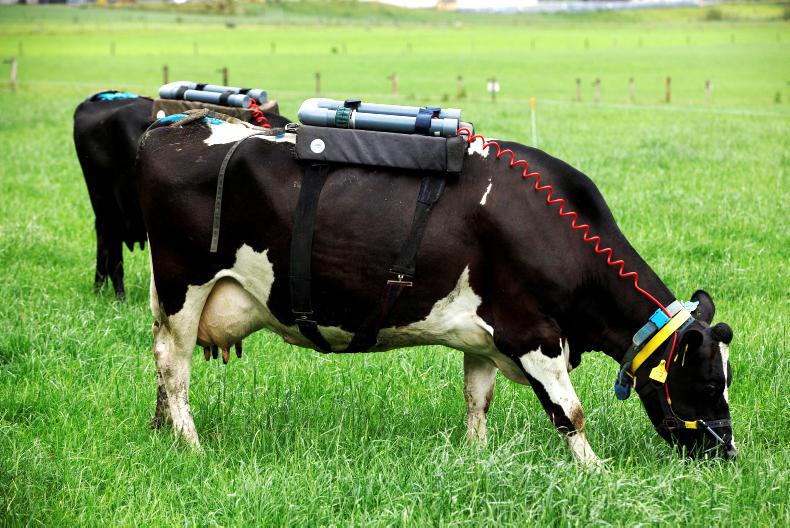There is overwhelming agreement among scientists that methane, which is emitted by ruminant livestock, behaves differently in the atmosphere compared to other greenhouse gases.
Carbon dioxide, which comes from burning fossil fuels, stays in the atmosphere for centuries, but methane breaks down within 12 years.
It is also widely accepted that the current system used for comparing the global warming potential (GWP) of different greenhouse gases, known as GWP100, does not accurately reflect the short atmospheric lifespan of methane.
Total cattle numbers in NI have fallen by 6% over the past 20 years, so methane from NI farms is not building up in the atmosphere. In fact, it is reducing and therefore has a global cooling effect.
UFU deputy president David Brown said he recognised that farming is responsible for 27% of greenhouse gas emissions in NI
This means that NI farming’s contribution to global warming is vastly overstated when figures are presented in terms of carbon dioxide equivalent under the GWP100 system.
To argue this point does not make you a climate change denier. It is simply a scientific fact. But it is a point that those leading our farming industry consistently fail to make.
Last week, UFU deputy president David Brown said he recognised that farming is responsible for 27% of greenhouse gas emissions in NI. Former Agriculture Minister Edwin Poots has also quoted the figure.
They shouldn’t.
Analysis by the Irish Farmers Journal suggests that agriculture is responsible for 11% of global warming activities in NI. This is based on the GWP* system for comparing greenhouse gases, which was developed by scientists at the University of Oxford.
If our farming leaders won’t make the case for ditching GWP100, or at least having separate emission reduction targets for methane, then who will?
The Intergovernmental Panel on Climate Change, the body that set GWP100 as an international standard for measuring emissions, is currently assessing GWP* and its conclusions are expected later this year.
If our farming leaders won’t make the case for ditching GWP100, or at least having separate emission reduction targets for methane, then who will?
It certainly won’t be industries that are reliant on fossil fuels, or those selling alternatives to meat and dairy products.






 This is a subscriber-only article
This is a subscriber-only article










SHARING OPTIONS: